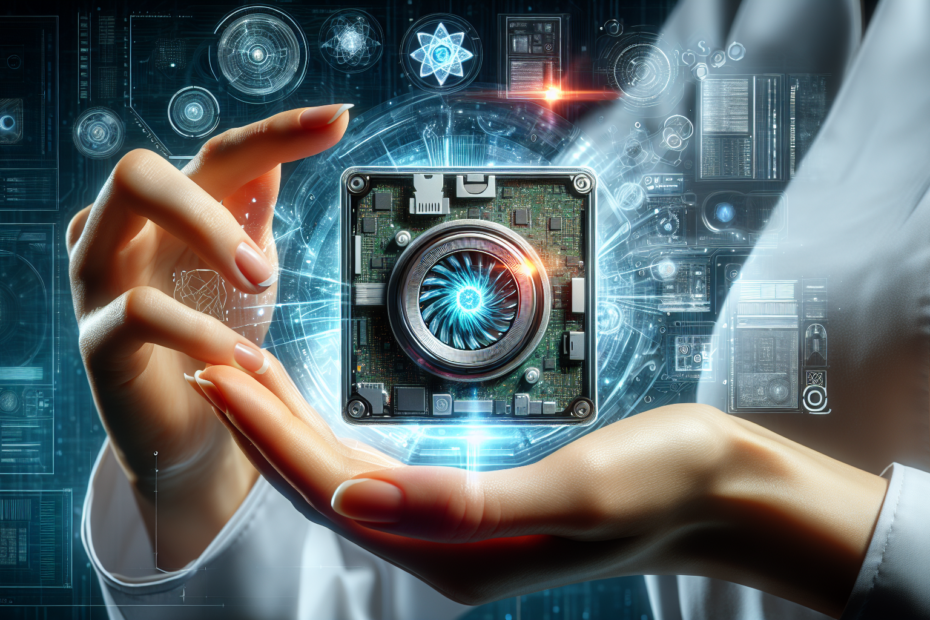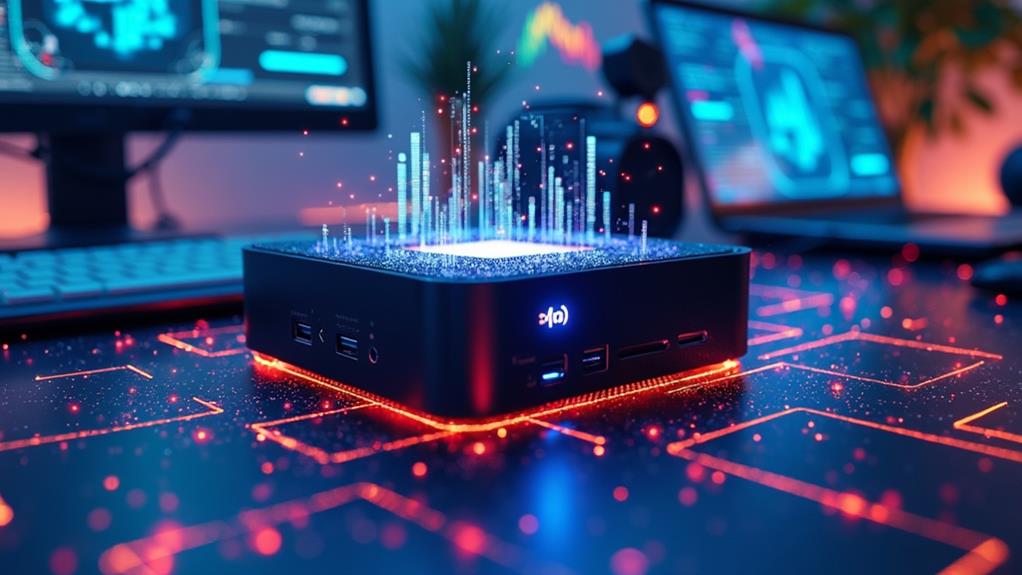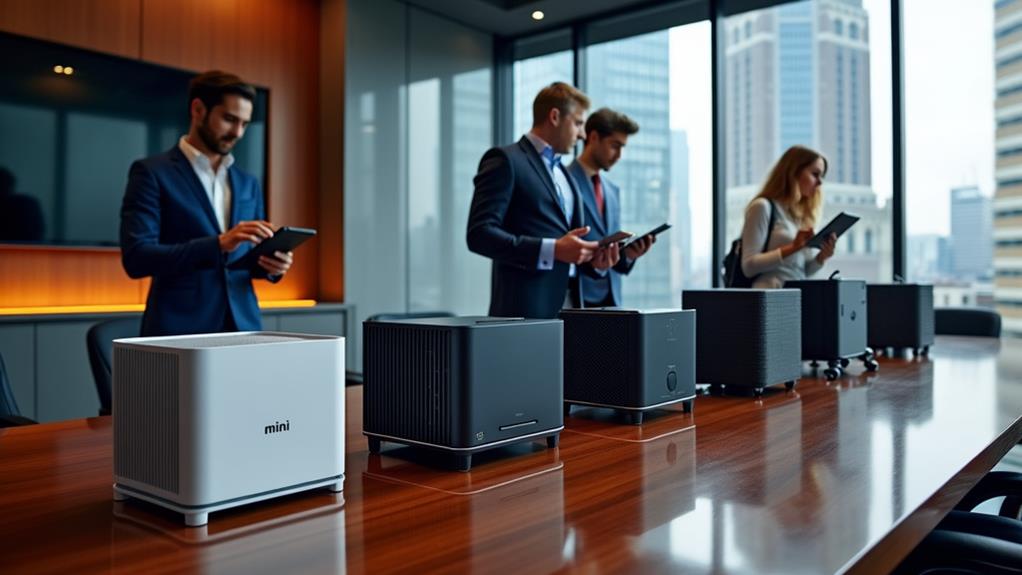



In the world of technology, you may have come across the term “mini computers” which often sparks curiosity about their alternative names. These compact devices, designed to perform specific tasks efficiently, have garnered various names over time. From microcomputers to embedded systems, these pint-sized powerhouses have found their place in countless industries, simplifying operations and revolutionizing the way we work and communicate. Join us as we explore the fascinating world of mini computers and uncover the different monikers they go by.
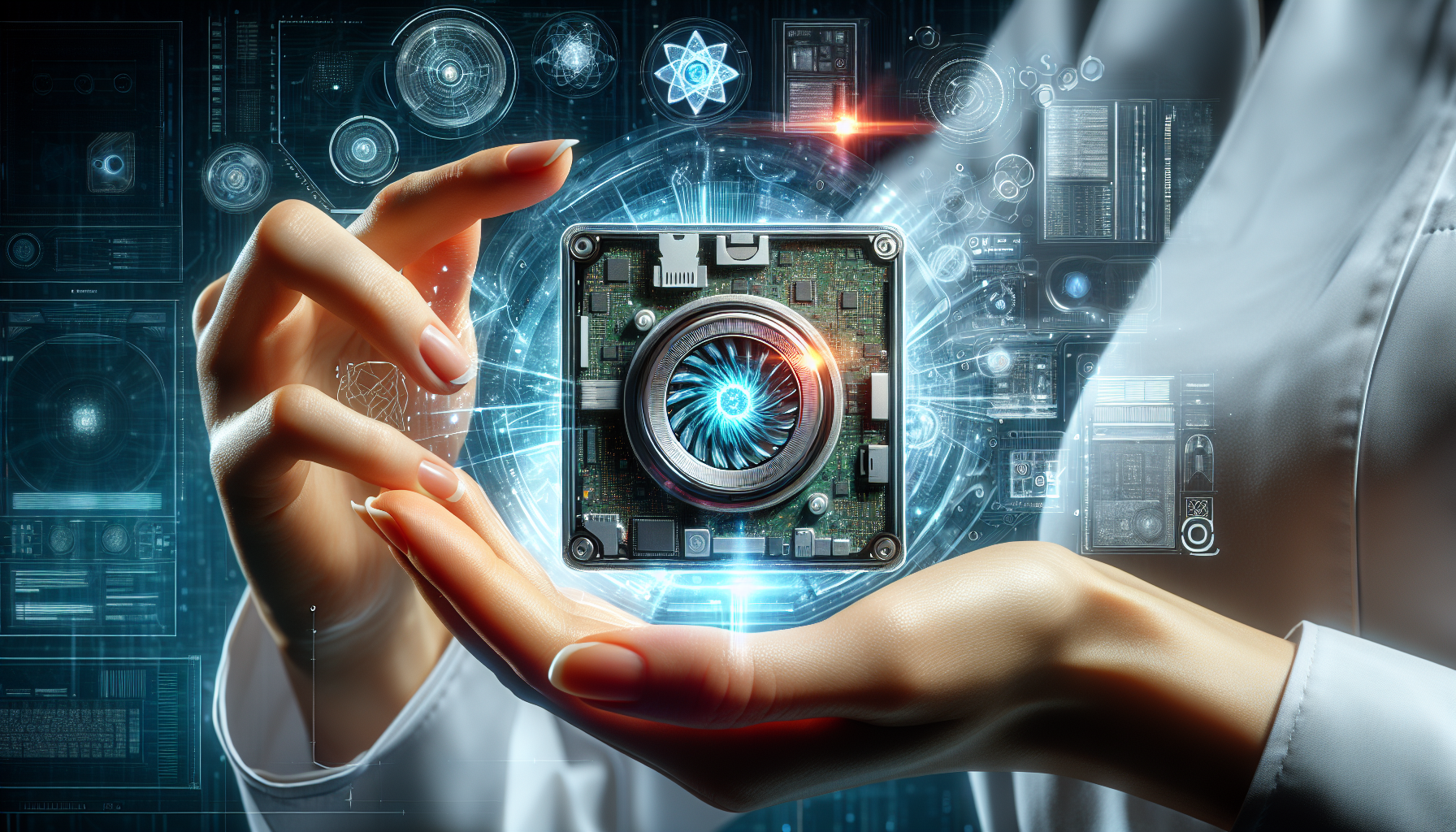
Definition of Mini Computers
Mini Computers Overview
Mini computers, also known as mini PCs, are compact and low-cost computing devices that are designed to perform specific tasks. They are smaller in size compared to traditional desktop computers and are often used in specialized applications such as embedded systems, robotics, and IoT (Internet of Things) devices. Despite their small size, mini computers are capable of executing a wide range of computing tasks, making them a popular choice for both professional and hobbyist users.
Characteristics of Mini Computers
Mini computers possess several key characteristics that distinguish them from other computer types. Firstly, they are compact and have a small physical footprint, which makes them highly portable and easy to carry. Additionally, mini computers are energy-efficient, consuming less power than traditional computers. They are also cost-effective, making them an affordable option for users on a tight budget. Despite their smaller size, mini computers often come equipped with an array of connectivity options, ensuring seamless integration with various peripherals and devices.
Types of Mini Computers
1. Single-Board Computers (SBCs)
Single-board computers (SBCs) are a popular type of mini computer that consist of a complete computer system built onto a single circuit board. They typically feature a microprocessor, memory, storage, and various input/output interfaces. SBCs are versatile and can be used for a wide range of applications, including media centers, home automation systems, and educational projects. Popular examples of SBCs include the Raspberry Pi and the BeagleBone Black.
2. System-on-a-Chip (SoC) Devices
System-on-a-Chip (SoC) devices are another type of mini computer that integrate all the necessary components of a computer system into a single chip. This includes the microprocessor, memory, graphics, and connectivity options. SoC devices are commonly used in smartphones, tablets, and other portable devices. They offer a high level of integration and are ideal for applications where space is limited, such as wearable technology and compact computing devices.
3. Microcontrollers
Microcontrollers are miniature computers that contain a microprocessor, memory, and input/output peripherals on a single chip. They are specifically designed to control and manage devices and systems in real-time. Microcontrollers are commonly used in embedded systems, where they provide the necessary intelligence to control hardware components such as sensors, motors, and actuators. They are widely used in industries such as automotive, consumer electronics, and industrial automation.
Applications of Mini Computers
1. Internet of Things (IoT)
Mini computers play a crucial role in the development and implementation of IoT devices. With their small size and low power consumption, mini computers can be easily integrated into smart devices such as home automation systems, environmental monitoring systems, and wearable devices. They provide the necessary computing power and connectivity to collect, analyze, and transmit data, enabling seamless communication between devices in an IoT ecosystem.
2. Embedded Systems
Embedded systems refer to computer systems that are designed to perform specific functions within a larger system or product. Mini computers are widely used in embedded systems due to their small size, low power consumption, and ability to interface with various hardware components. They are commonly found in applications such as medical devices, industrial control systems, and automotive electronics. Mini computers provide the intelligence and processing power necessary to control and monitor these embedded systems.
3. Robotics and Automation
Mini computers are extensively utilized in the field of robotics and automation. They are used to control robots, providing the necessary computing power and control algorithms. Mini computers enable robots to perform complex tasks, such as image recognition, object manipulation, and autonomous navigation. They are also used in industrial automation systems to control machinery and monitor production processes.
Advantages of Mini Computers
1. Size and Portability
One of the key advantages of mini computers is their small size and portability. Unlike traditional desktop computers, mini computers can be easily transported and used in various environments. This makes them suitable for applications where space is limited or mobility is required. Whether you need a portable media center for entertainment on the go or a compact computing device for fieldwork, mini computers offer the convenience of mobility without compromising functionality.
2. Energy Efficiency
Mini computers are designed to be energy-efficient, consuming less power compared to traditional computers. This not only helps reduce electricity bills but also makes them suitable for applications where power supply is limited or where low power consumption is crucial, such as in remote monitoring systems or battery-powered devices. The energy efficiency of mini computers also contributes to their longer battery life, ensuring uninterrupted operation in portable devices.
3. Cost-effective
Mini computers are known for their affordability, making them an attractive choice for users on a limited budget. They offer a cost-effective alternative to traditional desktop computers, without sacrificing essential computing capabilities. This affordability is especially beneficial for educational institutions, hobbyists, and small businesses that require computing power but have budget constraints. Additionally, the availability of a wide range of open-source software and resources further reduces the overall cost of using mini computers.
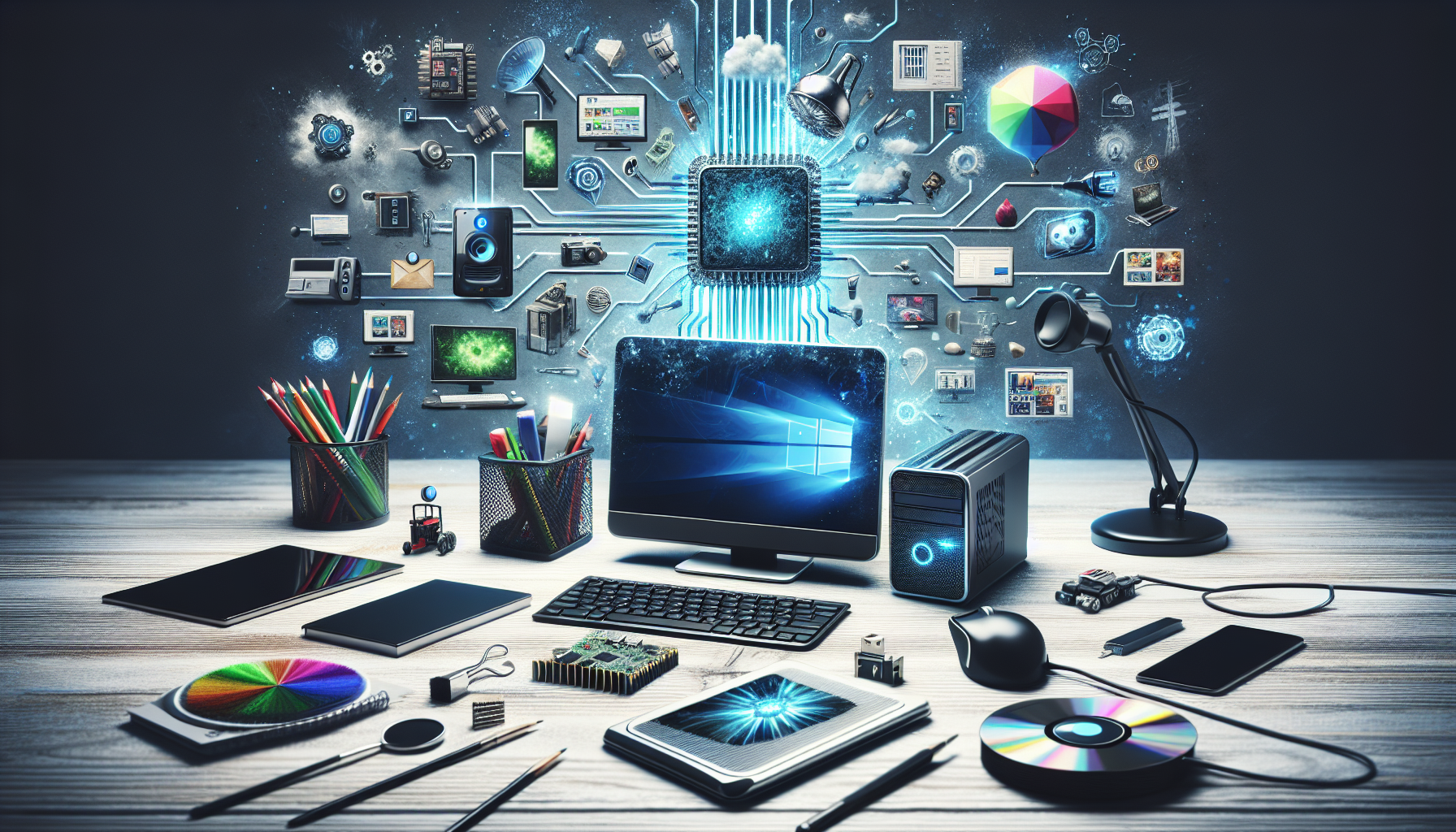
Limitations of Mini Computers
1. Processing Power and Memory Constraints
Due to their small form factor, mini computers often have limitations in terms of processing power and memory capacity. While they are capable of performing a wide range of tasks, they may not match the performance capabilities of high-end desktop computers or servers. This can be a limiting factor for applications that require intensive computational tasks or extensive memory requirements. It is important to consider the specific requirements of your intended application when choosing a mini computer.
2. Limited Expandability
Mini computers generally have limited options for expandability compared to traditional desktop computers. They often feature a fixed set of input/output interfaces and limited expansion slots, which can restrict the ability to add additional hardware components or peripherals. This can be a limitation for applications that require extensive connectivity options or expandability for future upgrades. However, mini computers do offer various connectivity options through USB ports, HDMI, and other interfaces, allowing for the connection of external devices.
3. Complexity for Non-technical Users
While mini computers offer a wide range of capabilities and flexibility, they can be more complex for non-technical users compared to consumer-grade computers. Setting up and configuring a mini computer may require some technical knowledge and familiarity with software installation and compatibility. However, with the increasing popularity of mini computers, there are numerous online resources, tutorials, and user communities available to assist non-technical users in getting started and troubleshooting any issues they may encounter.
Famous Mini Computers
1. Raspberry Pi
The Raspberry Pi is arguably the most well-known and widely used mini computer. Developed by the Raspberry Pi Foundation, it was initially designed to promote computing education and learning. The Raspberry Pi offers a range of models with varying specifications, providing a versatile platform for various projects and applications. Its affordable price, extensive community support, and commitment to open-source software make it a popular choice for DIY enthusiasts, educators, and professionals alike.
2. Arduino
Arduino is another popular mini computer platform known for its simplicity and versatility. Unlike traditional mini computers, Arduino is primarily focused on physical computing and interacting with the physical world through inputs and outputs. It features a microcontroller and a user-friendly integrated development environment (IDE) that allows users to program and control the board. Arduino is widely used in projects involving electronics, robotics, and home automation, and it is particularly popular among hobbyists and students due to its ease of use.
3. BeagleBoard
The BeagleBoard is a family of open-source single-board computers that offer powerful processing capabilities in a compact form factor. BeagleBoard devices are known for their high performance and extensive connectivity options. They are suitable for applications requiring a balance between performance and size, such as media centers, robotics, and industrial control systems. The BeagleBoard community provides comprehensive documentation, software libraries, and resources, making it a popular choice for developers and enthusiasts.
Comparison with Other Computer Types
1. Mini Computers vs. Mainframe Computers
Mini computers and mainframe computers are two different ends of the computing spectrum. Mainframe computers are large, powerful systems used by large organizations to process massive amounts of data and handle complex tasks. They are known for their high processing power, scalability, and reliability. In contrast, mini computers are smaller, less powerful devices that are designed for specific applications and tasks. They are more affordable and portable compared to mainframes but may not offer the same level of performance or scalability.
2. Mini Computers vs. Micro Computers
mini computers share similarities with microcomputers, also known as personal computers or PCs. However, there are key differences between the two. While both mini computers and PCs are compact and can perform a wide range of computing tasks, mini computers are typically designed for specific applications or tasks, whereas PCs are generally more versatile and can handle a broader range of applications. Additionally, mini computers often have lower power consumption and cost compared to PCs, making them a suitable choice for resource-constrained environments.
Future Trends and Innovations
1. Increased Integration and Miniaturization
As technology continues to advance, we can expect mini computers to become even smaller and more integrated. The trend towards miniaturization, driven by advancements in semiconductor manufacturing and packaging technologies, will result in mini computers with even smaller form factors, while still providing powerful computing capabilities. This increased integration will open up possibilities for new applications and use cases, particularly in areas where space is limited or mobility is crucial.
2. Advancements in Energy Efficiency
Energy efficiency will continue to be a key focus in the development of mini computers. As the demand for sustainable and environmentally friendly technologies grows, mini computers are expected to become even more energy-efficient. This will not only reduce power consumption and carbon footprint but also enable the use of mini computers in applications where power supply is limited or renewable energy sources are employed.
3. Expanded Connectivity Options
With the proliferation of IoT devices and the need for seamless connectivity, mini computers will likely offer expanded connectivity options in the future. This will include support for emerging wireless technologies such as 5G, as well as enhanced connectivity with other devices and platforms. Expanded connectivity options will enable mini computers to seamlessly integrate with a wide range of devices and systems, further enhancing their versatility and applicability in various industries.
Conclusion
Mini computers, with their compact size, affordability, and versatility, have revolutionized the way we approach computing. From powering IoT devices to controlling complex robotics systems, mini computers have found their place in various fields and applications. While they may have limitations in terms of processing power and expandability, the advantages they offer, such as portability, energy efficiency, and cost-effectiveness, make them a valuable computing solution for both professionals and hobbyists. With innovations in miniaturization, energy efficiency, and connectivity options expected in the future, mini computers will continue to evolve and shape the digital landscape.
Disclosure: As an Amazon Associate, I earn from qualifying purchases.
